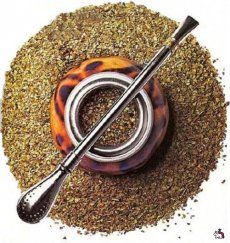Medical expert of the article
New publications
Aluminum
Last reviewed: 05.07.2025

All iLive content is medically reviewed or fact checked to ensure as much factual accuracy as possible.
We have strict sourcing guidelines and only link to reputable media sites, academic research institutions and, whenever possible, medically peer reviewed studies. Note that the numbers in parentheses ([1], [2], etc.) are clickable links to these studies.
If you feel that any of our content is inaccurate, out-of-date, or otherwise questionable, please select it and press Ctrl + Enter.

Aluminum is a microelement, without which normal development of bones and connective tissue is impossible. Without aluminum, the skin cannot look healthy. What are the properties of aluminum and from what products can it be obtained?
 [ 1 ]
[ 1 ]
Properties of aluminum
- Aluminum controls the process of skin epithelium production and also participates in the formation of bone tissue. But not only bone, but also muscle and connective tissue, because aluminum is present in almost all cells of the body.
- A lot of aluminum is formed in the lungs, as well as in the bones, brain, epithelium and especially in the liver.
- Aluminum may not stay in the body for long, especially if its doses are small. Aluminum can be excreted from the body with decay products - urine, sweat, feces, even with air during exhalation.
- Aluminum helps the stomach digest food because it improves the ability of gastric juice to break down food.
- Aluminum is good for the thyroid gland because it activates its function.
- Aluminum improves the ability of bones and connective tissue to recover and develop, strengthens bone tissue.
- Aluminum has the ability to improve the body's perception of phosphate complexes and protein foods, so it should be taken during protein diets.
Incompatibility of aluminum
Some microelements should not be taken together with aluminum: magnesium, calcium, iron, ascorbic acid, and vitamin B6. Aluminum has the property of inhibiting the absorption of these vitamins, preventing them from being absorbed into the intestines.
Daily requirement of aluminum
It is a dose of 30 to 50 mg per day.
What products can produce aluminum?
Lots of plant food – lots of aluminum. Plants contain up to 100 times more aluminum than animal food. Aluminum can be taken from fruits, berries, bread, good purified drinking water. And what products contain the most aluminum?
- This is oatmeal cooked in water - 1970 mcg of aluminum
- These are wheat grains (unprocessed) - 1445-1570 mcg of aluminum
- This is peas - 1180 mcg of aluminum
- This is rice - 912 mcg of aluminum
- This is a potato - 860 mcg of aluminum
- This avocado has 815 mcg of aluminum.
- This is eggplant and artichoke - 815 mcg of aluminum each
Excess of aluminum
Symptoms of excess aluminum are as follows.
- Cough (mostly dry)
- Poor appetite
- Gastrointestinal disorders
- Unmotivated irritability, nervousness
- Depression
- Parkinson's disease and Alzheimer's disease
- Rickets
- Kidney disorders
- Low hemoglobin in the blood and a small number of red blood cells
- Disruption of the metabolism of microelements such as magnesium, calcium, zinc, phosphorus, copper (can be determined through laboratory tests)
Causes of Excess Aluminum
A person may have an excess of aluminum in the blood if he eats a lot of canned food, cooks food in aluminum pans, drinks bad water (for example, from the tap, without a filter).
Excess aluminum can also be caused by a situation where the patient is in poor environmental conditions, if the air in the house is polluted (it has not been cleaned for a long time), or if the person works in a hazardous production facility.
If the daily dose of aluminum is equal to or exceeds 50 mg, an excess of it may occur in the body. This should not be allowed under any circumstances.

